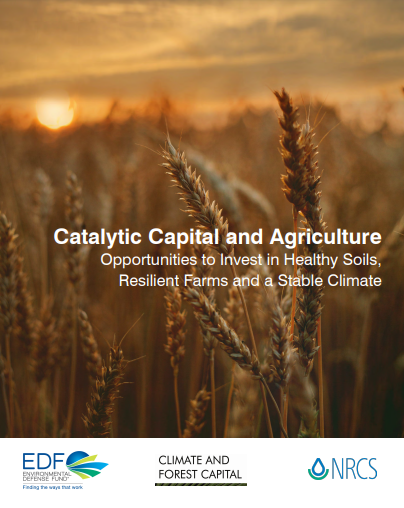The team at Agrarian Trust is thrilled to see the Agrarian Commons model of community-held farmland featured in a new report on innovative models for agriculture.
As the report’s authors explain, “Catalytic capital is traditionally defined as the use of blended finance tools to improve projects’ risk-return profiles to match the requirements of market rate investors. This report emphasizes that catalytic capital should also involve funding to support research, policy and technical assistance alongside direct investments to maximize impact.”
Download Catalytic Capital and Agriculture

Catalytic Capital and Agriculture, which was supported by a USDA NRCS Conservation Innovation Grant, identifies barriers holding back investment in climate-smart agriculture and describes areas of opportunity for catalytic capital to address these barriers, as illustrated by five case studies.
Excerpt from the report:
Agrarian Commons By Agrarian Trust
Catalytic category: Regional value chain development
• Agrarian Trust uses Program-related investment funding to acquire farmland from retiring farmers and places it under the control of a local non-profit entity. It is also financed through a set of agricultural easements. The Agrarian Commons (the non-profit entity) is designed to convey long-term affordable multi-farmer tenure in support of sustainable agricultural management. Some commons sites can act as anchors for regional value chains for organic and sustainable farming, supporting shared investments in equipment, processing and marketing. They also offer technical resources and serve as a training ground for the experienced and next-generation farmers.
• The Agrarian Commons illustrates the power of challenging deeply held assumptions about how land and other assets are valued and should be used.


